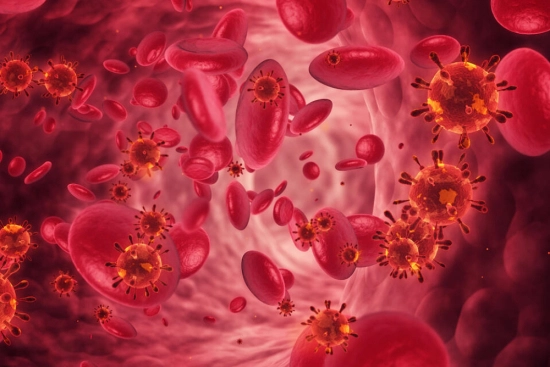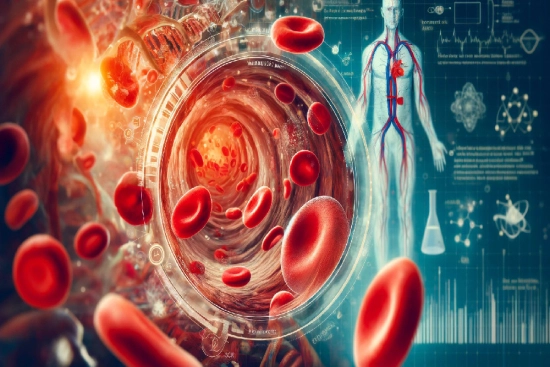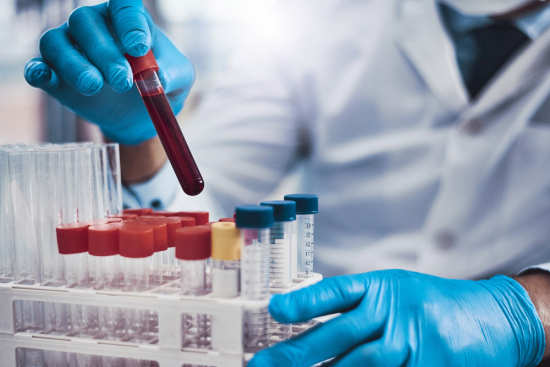Hematology is the medical specialty devoted to the study of blood and blood disorders. It studies all the mechanisms that control the production, circulation, and functions of blood cells.
If you have questions about your blood, your hematologist is the specialist qualified to answer them. He or she will analyze your tests, make a confident diagnosis, and suggest a personalized treatment plan. He or she will also explain the reasons for any abnormal results in a clear and simple way, and put your mind at ease.
Patients with :
- Blood disorders
- Anemia
- leukemia
- coagulation
- 1 to 2 hours: To obtain results
- Up to 24 hours or more: For complex tests
Best Clinics with Verified Reviews

- Multispecialized hospital
- 7 operating rooms
- Capacity é of 170 beds
When should you consult a hematologist?
If you have unexplained symptoms or abnormal blood test results, it's important to see a hematologist. This blood specialist can help you understand the cause of your problems and make an accurate diagnosis.
There are many reasons to see a hematologist:
- Alarming symptoms: chronic fatigue, paleness, shortness of breath, recurring fevers, unusual bleeding (nose, gums, skin),spontaneous bruising, numbness, tingling, or bone pain.
- Family history of blood disorders: leukemia, lymphoma, hemophilia, etc.
- Abnormal test results: blood count (CBC) or erythrocyte sedimentation rate (ESR) showing significant changes in blood cells.
- Risk factors: certain drug treatments, chronic infections, or exposure to toxic substances.
Diseases treated in hematology
A wide range of conditions may be treated by the hematologist, including:
- Anemia: A lack of red blood cells, which carry oxygen throughout the body.
- Leukemia: blood cancers that affect the production of white blood cells.
- Lymphoma: Cancer of the lymphatic system, which plays an important role in the body's immune system.
- Multiple myeloma: Cancer of plasma cells, a type of white blood cell.
- Bleeding disorders: such as hemophilia, which causes excessive bleeding.
- Bone marrow aplasia: The bone marrow is unable to produce enough blood cells.
To make an accurate diagnosis, the hematologist may perform various tests, such as bone marrow aspiration, lymph node biopsy, and special blood tests.

Causes of blood disorders
Blood disorders are often the result of a complex combination of factors:
- Genetic predisposition may make some people more susceptible.
- Environmental factors such as exposure to chemicals, infections, or nutritional deficiencies can trigger or worsen these diseases.
- Age, the presence of chronic diseases (such as diabetes),and certain treatments (chemotherapy, radiation) can also affect their onset.
- Factors related to age and general health, as well as certain medical treatments, may also play a role.
In many cases, the exact causes are not known, so each case is unique.
Blood disorders treatment in Turkey
The treatment of blood disorders depends on many factors, such as the type of disease, its stage of progression, the patient's age and general health.
The main therapeutic approaches used in hematology are:
- Chemotherapy: This treatment uses drugs to destroy rapidly multiplying cancer cells, such as in leukemia and lymphoma.
- Radiation therapy: This therapeutic technique uses ionizing radiation to induce the death of cancer cells in a specific area of the body.
- Bone marrow transplantation: This procedure replaces diseased bone marrow with healthy stem cells, either from a compatible donor or from the patient's own bone marrow (autotransplantation).
- Immunotherapy: This therapeutic approach aims to stimulate the body's immune system to recognize and specifically eliminate tumor cells.
- Targeted therapies: These drugs specifically target cancer cells by blocking molecules involved in their growth and survival.
- Blood transfusions: These replace missing blood cells (red blood cells, platelets) in cases of anemia or clotting disorders.
- Symptomatic treatments: These aim to relieve the symptoms of the disease, such as pain, fever or anemia.
In Turkey, the choice of treatment is made by the hematologist in collaboration with a multidisciplinary team (doctors, nurses, pharmacists, etc.).

Possible side effects
Treatments for blood disorders can cause a variety of side effects, including:
- Fatigue.
- Nausea.
- Hair loss.
- Weakened immune system.
- Blood disorders (anemia, thrombocytopenia).
- In some cases, digestive, nervous, or heart disorders.
These side effects vary depending on the type of treatment and the individual. It's important to know that there are treatments available to reduce these discomforts.
Don't hesitate to discuss them with your healthcare team in Turkey.
Chances of recovery from blood disorders in Turkey
The prognosis for blood disorders is individual and depends on many factors. Early diagnosis, combined with appropriate and effective treatment, greatly improves the chances of recovery.
Are you suffering from a blood disorder? Turkey is the destination of choice for hematological treatment. Our partner clinics, equipped with the latest technology, offer quality care at competitive prices.
Benefit from personalized care and insurance to cover any unforeseen circumstances. Request your free quote now and go with peace of mind.
Share this page






